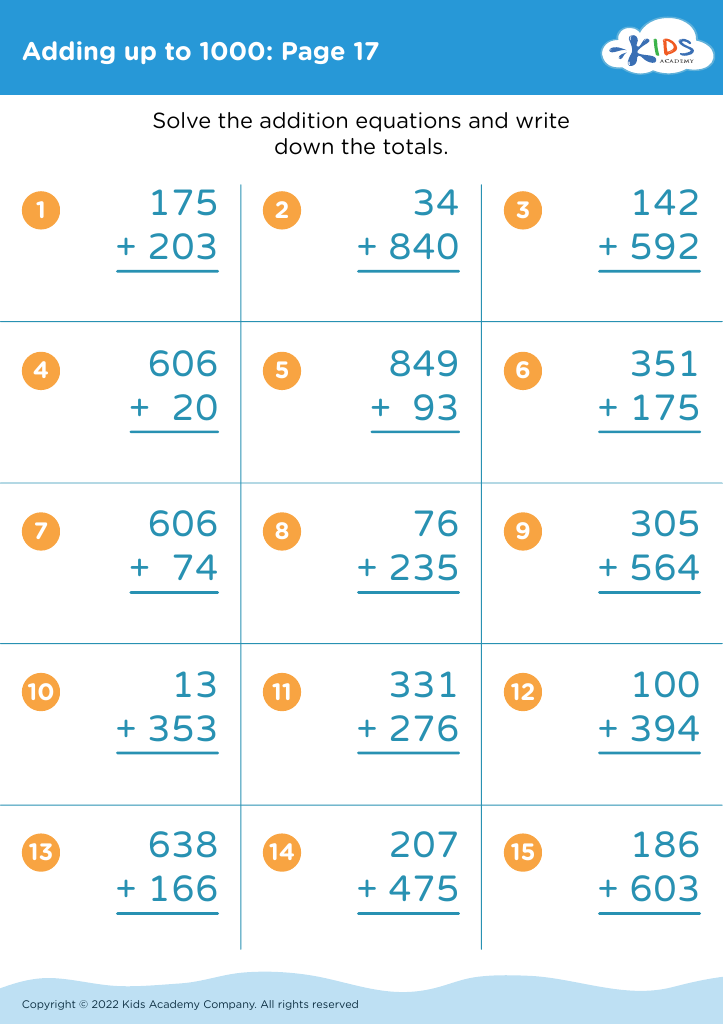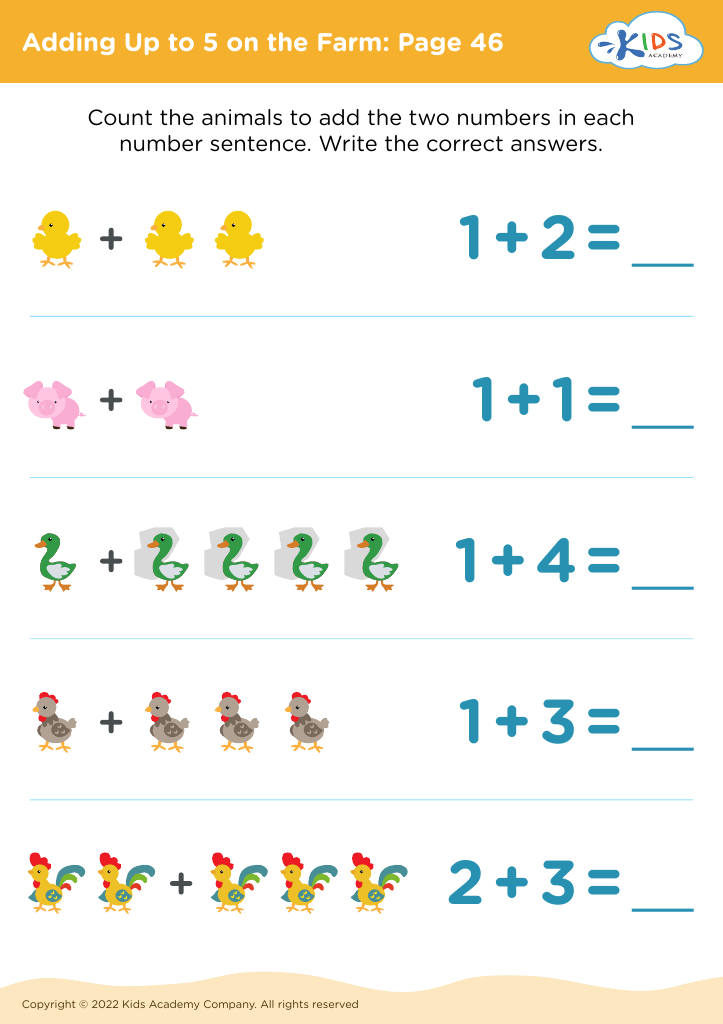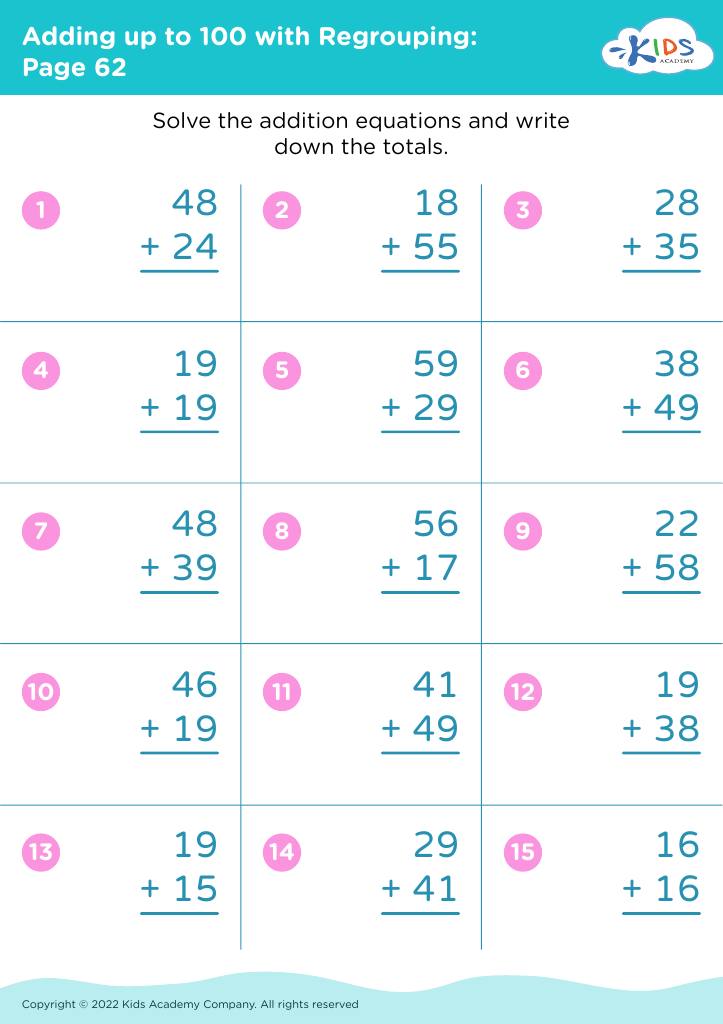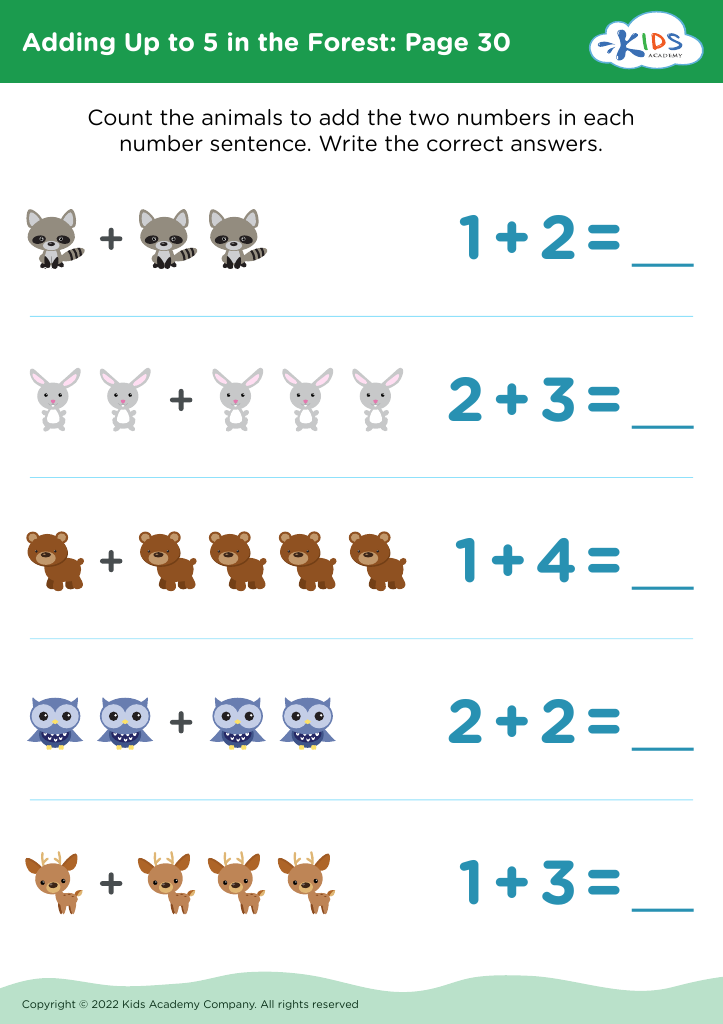Number comprehension Addition Worksheets for Ages 5-7
7 filtered results
-
From - To
Explore our engaging Number Comprehension Addition Worksheets designed specifically for children aged 5-7. These worksheets aim to strengthen young learners' understanding of numbers and addition concepts through fun activities and colorful visuals. By practicing number recognition and simple addition problems, kids will build a solid math foundation and boost their confidence. Our worksheets cater to various skill levels, ensuring a customized learning experience for every child. Ideal for home or classroom use, these resources promote interactive learning while making addition enjoyable. Start your child’s math journey today with our comprehensive collection of worksheets tailored to foster essential number comprehension skills!


7 Continents and 7 Seas Worksheet
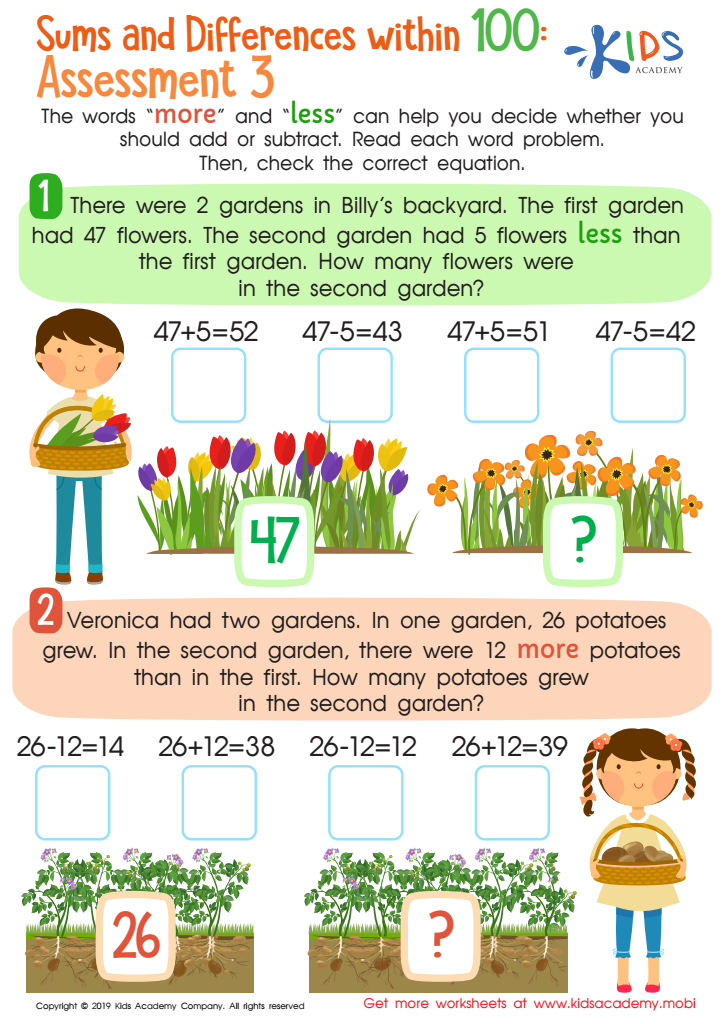

Sums and Differences Within 1 - Assessment 1 Worksheet
Number comprehension, particularly in the context of addition for children aged 5-7, is fundamental for several reasons. First, this stage serves as a critical time in a child's cognitive development, where foundational math skills are built. Understanding addition helps children develop number sense—an intuitive grasp of numbers, their magnitude, relationships, and how they can be manipulated.
Engagement with addition promotes problem-solving skills. Children learn to analyze situations and find solutions, fostering both critical thinking and coping skills that will benefit them throughout their academic journey. Furthermore, strong addition skills often correlate with overall academic performance, as mathematics is a cornerstone for future learning in subjects like science and economics.
For parents and teachers, nurturing number comprehension provides an opportunity for involvement in a child's education. This engagement can strengthen the parent-child or teacher-student bond while reinforcing a child's confidence and enthusiasm towards learning.
Ultimately, fostering a solid understanding of addition sets the stage for lifelong mathematical proficiency. By emphasizing the importance of number comprehension in these formative years, parents and teachers play a crucial role in ensuring children are equipped for future educational challenges, nurturing both their intellect and self-esteem.
 Assign to My Students
Assign to My Students

